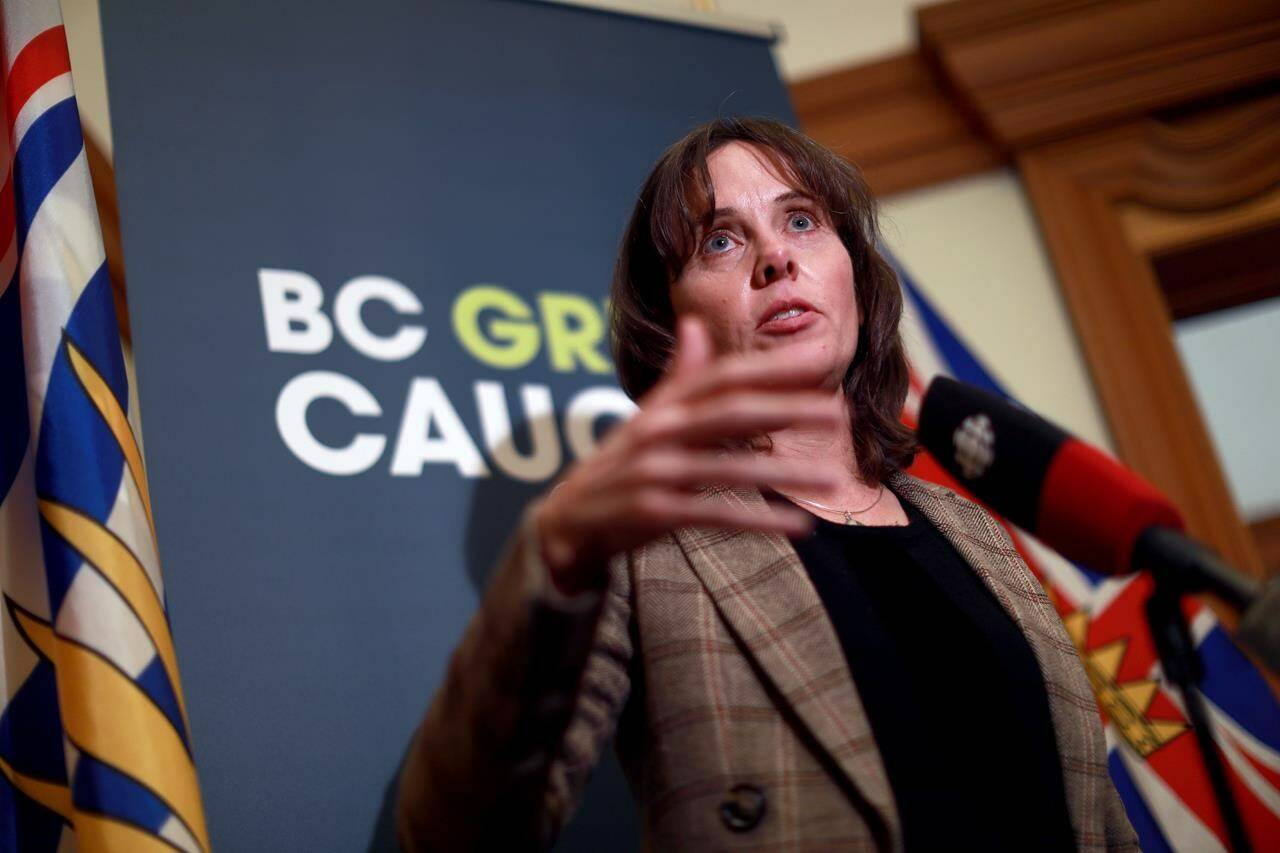B.C. United’s Elenore Sturko says government is putting the “cart before the horse” by asking for changes that would prohibit public drug use everywhere, while B.C. Greens’ Sonia Furstenau is accusing government of ignoring the courts and the real harms of drug use.
Premier David Eby Friday (April 26) announced that government will ask the federal government to make illicit drug use illegal in all public spaces including parks, hospitals and on transit. That request follows months of pressure from the public, police and parts of the political opposition.
With the next provincial election less than six months, Sturko predicts that the federal government will expedite B.C.’s request. “But the problem is that even if police are moving people along, it’s actually not getting them into the services they need to prevent them from dying,” she said.
She added that these changes are not addressing the “root causes” of the problem.
“It’s not providing housing, it’s not providing healthcare, it’s providing free treatment for all British Columbians, it’s not providing the social programming that people, things that should have been scaled up over the last seven years of this government’s tenure.”
Getting Ottawa’s approval is the province’s least worry, she added.
“They should be more concerned with the fact that they are setting people up for failure by simply moving people along without the actual services existing,” she said. “They put the cart before the horse.”
Sturko repeated her party’s call for an outright end of decriminalization while advocating for alternative approaches. “We are lacking that way to help guide people there, to help them become compelled to change behaviour,” Sturko. “We are relying purely at this time on voluntary participation.”
RELATED: B.C. to ban drug use in public spaces, including inside hospitals
Furstenau said in a statement that she hears the concerns, which families and communities have had about drug use in public spaces where children play and people gather.
“It’s essential we keep these areas safe,” she said. “However, simply increasing police powers will not solve the root problems of public drug use. Such measures are not only ineffective but could greatly exacerbate systemic issues and overburden our judicial system.”
She also pointed to rulings by the B.C. Supreme Court. It has been clear that “severely restricting public drug consumption would cause irreparable harm to people at risk of injury and death amidst a public health crisis,” she said. “(It’s) disappointing that the B.C. NDP has chosen to attempt to bypass these concerns from the judiciary.”
Furstenau said “a compassionate, evidence-based approach” would focus on expanding safe consumption sites, comprehensive treatment and support for individuals battling mental health challenges and addictions.
“The safer supply program is inadequate, there are not enough safe consumption sites throughout the province, and many do not accommodate the most common method of drug consumption, which is smoking,” she said, adding the re-introduction of criminal penalties could lead to a “significant increase” in costly incarcerations. “Police discretion is especially likely to stigmatize Indigenous and racialized British Columbians,” she said.
She added that the toxic drug crisis is “intrinsically” linked to housing and affordability.
“Rolling back decriminalization isn’t going to fix that.”

